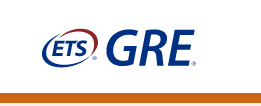The Department of Chemistry aspires to establish itself as an internationally recognised and globally competitive centre for graduate teaching and research. The Department has initiated and maintained internationally recognised research Programmes in a wide variety of chemical disciplines for the last few years that include nanoscience and nanotechnology, materials chemistry, catalysis, drug discovery and medicinal chemistry. The faculty consists of an outstanding group of scientists who are committed to pursuing and maintaining excellence in research. The graduate Programme (MS and PhD) in Chemistry is an exciting opportunity for students to take advantage of the Department’s conducive and thriving research environment to contribute effectively in the development of science. The Department’s mission is to produce outstanding graduates who can excel and become future leaders in academia and industry.
Research Opportunities
The Department of Chemistry at LUMS is comprised of a diverse group of research-active faculty members. In addition to the traditional areas of chemical sciences, they work on interdisciplinary research projects interfacing chemistry with various fields, including Biology, Medicine, Physics, Environmental and Material Science and Engineering. The faculty research groups are actively working to develop world-class research Programmes in Nanoscience and Nanotechnology, Macromolecular Chemistry, Green Synthesis/Catalysis, Renewable Energy Technologies, Drug Discovery, Medicinal Chemistry, Healthcare and Environmental Remediation.
Chemistry teaching and research labs are well equipped with the state-of-the-art experimental facilities and equipment. There is a good collection of supplies and equipment including spectroscopic, structural and materials characterization tools. These tools include field emission scanning electron microscope equipped with advanced detectors, EDS and e-beam lithography, NMR (23 MHz), GC-MS, TGA-DTA, DSC, LC-MS, HPLC, Vibrating Sample Magnetometer (VSM), XRD, Zetasizer Nano – ZSP, Multi-label Plate reader, FT-IR spectrometer with diamond ATR attachment, FT-IR spectrometer for thin films analysis, UV-Vis spectrophotometers, spin coaters, microwave synthesizer (CEM), refrigerated/non-refrigerated micro-centrifuges, high-temperature furnaces, photo-reactors, pellet press machine, high-temperature autoclave with steel/teflon reactor, impedance analyzer with climate chamber attachment, potentiostat with cyclic voltammeter, contact angle measuring equipment, magnetic susceptibility balance goniometer and more.
The Chemistry faculty has developed very effective and fruitful research collaborations with prominent national and international research groups in USA, UK, Germany, Switzerland, Turkey, China and Saudi Arabia. These collaborations are very helpful in keeping the faculty abreast with the latest developments in the field and to use advanced technology platforms and high-tech equipment that are currently not available anywhere in Pakistan. So far, these collaborations have been very effective in getting highly competitive international research grants and in publishing high quality research articles in prestigious international journals.
* The medium of instruction at LUMS is English for all degree programmes offered. Assessments are accepted in English only.

